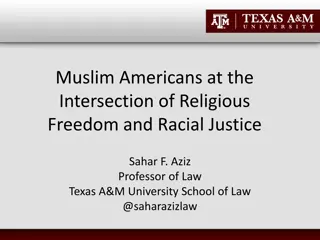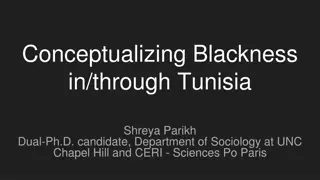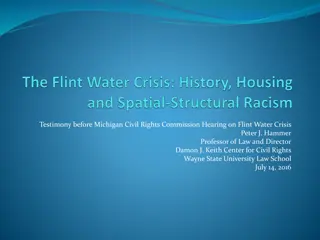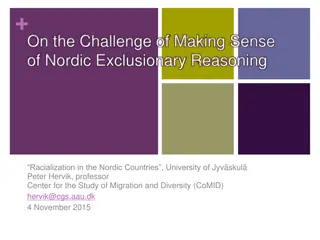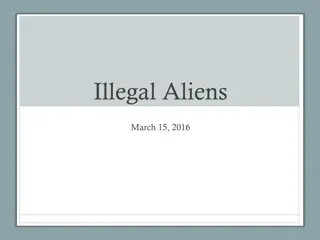Muslim Americans at the Intersection of Religious Freedom and Racial Justice
This research explores how Muslims in America face discrimination post-9/11, leading to the racialization of their religion. It delves into how the intersection of race and religion shapes the social construction of the "Racial Muslim," marginalized from the realm of religious freedom into a subordi
4 views • 18 slides
Exploring the Social Construction of Blackness in Tunisia
Shreya Parikh, a Dual Ph.D. candidate, delves into the social construction of Blackness in Tunisia through a comprehensive research project focusing on social imagination, racialization based on skin color, and processes of contestation. The study aims to unravel the intersections of race, ethnicity
2 views • 24 slides
Understanding Spatial Racism and Its Role in the Flint Water Crisis
Professor Peter J. Hammer's testimony before the Michigan Civil Rights Commission sheds light on the historical lineage of spatial racism in Flint and Genesee County. The interaction between beliefs and institutions over time has shaped racial oppression, from slavery to current issues such as the F
0 views • 38 slides
Nordic Exclusionary Reasoning and Racism: Understanding the Challenges
This content explores the issues of racialization and exclusionary reasoning in the Nordic countries, shedding light on the complexities of racism, entitlement, and perceptions towards different groups. Through discussions on images, blog posts, and societal attitudes, it delves into the nuances of
0 views • 29 slides
Understanding Illegal Aliens and Immigration Policy in the United States
The concept of illegal aliens in the United States dates back to the 1798 Alien and Sedition Acts. While U.S. law differentiates between aliens and immigrants, there is no explicit definition of "illegal alien." The Immigration Acts of the 1920s led to the emergence of illegal immigration as a signi
0 views • 6 slides
